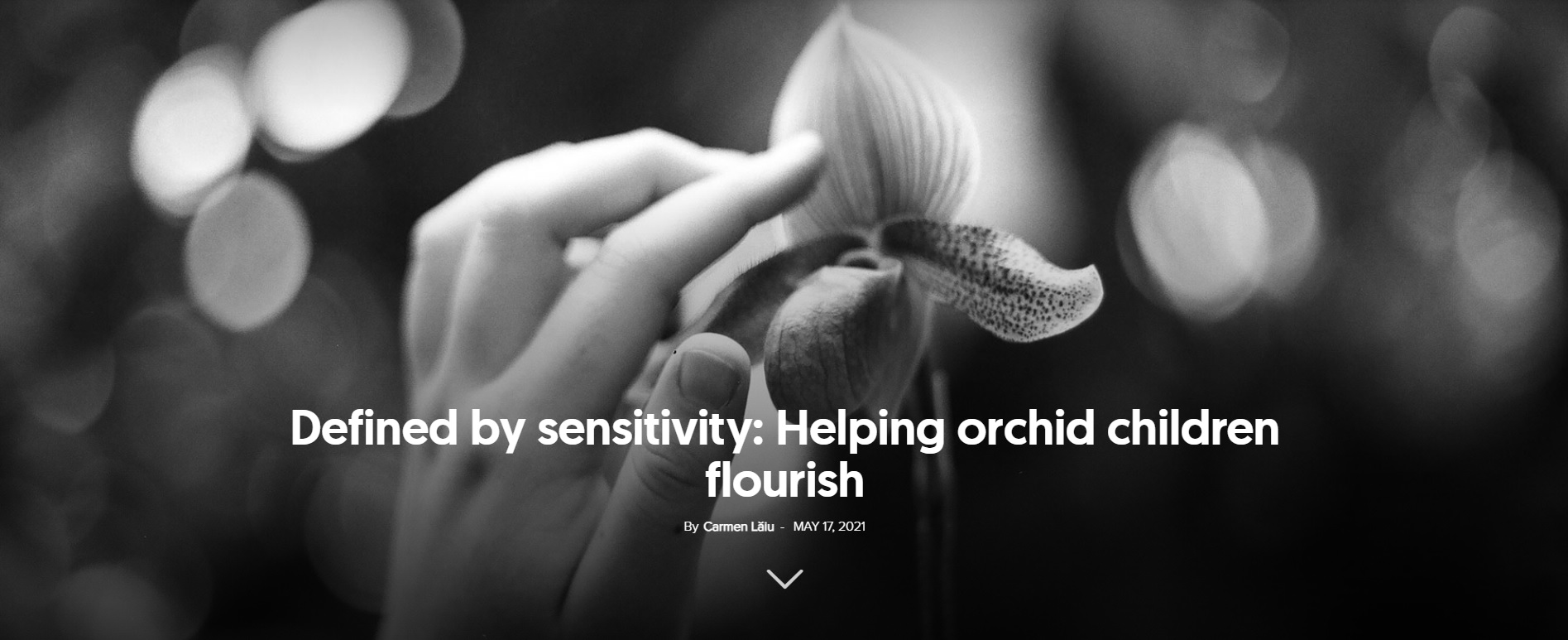They would rather work alone or in small teams, they do not wish to draw attention, they love quiet, less stimulating environments, and they need time to make decisions. With this general profile, introverts seem to have a slim chance of prospering in a society that usually rewards extroverts—unless they learn to harness their strengths.
What’s it like to be an authentic introvert and to choose a profession that requires constant interaction with both familiar and unfamiliar people? Especially if, outside of work, you would rather walk around in circles for hours than ask a stranger for directions?
This is exactly what journalist Sirin Kale went through. She recounts how, when on holiday, if she wants a group photo she always hands the phone over to someone in the group and asks them to approach a stranger and ask for this tiny favour. Kale chose journalism to face her reluctance to talk to strangers. Her job not only forces her to approach strangers on a daily basis, but also to ask them questions that can be extremely personal. Despite all this, Kale says she did not turn into an extrovert. She still prefers a quiet evening at home over going out, and her friends understand that this is her way to recharge her batteries before the next time she has “to face the world”. She knows, however, that introverts are often regarded as if something is wrong with them: perhaps they are snobs, or loners with issues. They are, at best, mistaken for shy people.
Introversion is not shyness
Although often regarded as interchangeable, researchers have shown that introversion and shyness are not connected, neither conceptually, nor empirically, says Louis Schmidt, the director of the Child Emotion Laboratory, at McMaster University. Both personality traits are connected to socialization. However, while shy people are afraid of socialization and fail to do away with their shyness, introverts have a weak desire to socialize, although they have the ability to behave like extroverts when they choose to do so.
Introverts need to be alone to be able to recharge, like a battery does, so they can then go out into the world and connect with others, Dr Jennifer Kahnweiler explains.
Introverts need to be alone to be able to recharge.
Introversion and shyness can be intertwined, creating different behavioural variants: shy and introverted people, shy but not introverted, introverted but not shy. These types behave differently, but the emotional charge differs from one case to the other too, says Schmidt. The professor studied shyness in children, observing them during their first 12 years of life. His conclusion was that shyness is a trait with some flexibility (to a fairly limited degree), but, although insufficiently studied, introversion presents itself like a fairly stable trait with an even lower probability of being affected by influences.
This is a piece of information that seems to escape parents, teachers, and employers who tend to push introverts to adopt extroverted behaviour as a condition for maximising their chances of success.
Is success for extroverts only?
The truth is that extroverted employees are often preferred due to their evident qualities. They are talkative, full of life, involved, and eager for new experiences, says Michael Wilmot, from the University in Toronto. One of the studies he coordinated shows that the evidence for this preference is well substantiated. Revising 91 other studies that followed the connection between extroversion and work-related variables, Wilmot’s team concluded that in 90% of the 165 variables, extroverts enjoyed small advantages, and in the case of 4 variables (motivation, positive emotions, interpersonal relations, and performance) the advantage was obvious.
Thus, researchers discovered that extroversion is related to a stronger motivation to achieve established objectives. It is closely associated with the usual experience of positive feelings (which, in turn, is associated with a tendency to work more and a higher resistance to the usual stress associated with work experiences), and a better ability to socialize. The obtained performances seem to come from the combination of the three aforementioned strengths.
The results of this study should not cause an introvert to consider himself disadvantaged from the start, says Wilmot, explaining that there are many jobs where, generally speaking, an introverts’ characteristics are very useful. On the other hand, work-related success comes from a complex combination of factors, among them, wit and thoroughness. Therefore, the presence of an introverted or extroverted personality cannot alone predict success or failure, the researcher concludes.
Introverts and their strengths
Most introverts, at some point, try to behave like extroverts, because this is the message their family, school, and society sends them. In reality, this attempt at metamorphosis is a loss, both for them and for the world we live in. This view belongs to Susan Cain, author of the book Quiet: The Power of Introverts in a World That Can’t Stop Talking. Cain is, according to the American magazine Fast Company, one of the most creative people in the business world and a world-renowned expert in management and leadership.
Somewhere between one-third and one-half of the world’s population are introverts, and society still seems to have designed its institutions to suit the needs of extroverts, designating introversion as something between a pathology and a disappointment. If in the last century we lived in what historians called the “culture of character,” as people began to move to the cities and work in large companies, we have moved toward a “culture of personality,” Cain observes. At the same time, introverts have many strengths, and when they cannot be capitalized on, we are all at a loss, the author says.
If in the last century we lived in what historians called the “culture of character,” as people began to move to the cities and work in large companies, we have moved toward a “culture of personality”.
The very way in which decisions are made is to the advantage of introverts because they have the tendency to analyse more until they reach a final conclusion, and some problems and moments require this exact method of deliberation. Introverts are also inclined towards prudence and do not take exaggerated risks. Creativity is, according to studies, another valuable resource introverts have. It is known that solitude is a key ingredient for creativity.
The ability to listen, also acquired because they do not want to draw attention to themselves, helps introverts connect to others at a deeper level. Extroverts tend to talk without fully processing the information the other is sending out, because they process information interactively. On the other hand, introverts take their time to process information, so they hear, understand, and offer more careful feedback, psychologist Laurie Heloge says.
Introvert leaders can get equally good results as extrovert ones. This was the conclusion of a study coordinated by Professor Adam Grant from Wharton School. Each management style can be equally efficient, but with different employee groups, and this conclusion is good news for someone who studies social sciences because it brings new evidence on human complexity, Grant says.
When they are passive, employees behave better if they are led by an extroverted leader. In the case of proactive employees, the team works more efficiently with an introverted leader. There are a few explanations for this inverted relationship. Extrovert leaders want to be the center of attention, so they tend to feel threatened by the employees’ proactivity. On the other hand, introverted leaders are more predisposed to be sensitive to employees’ suggestions, to support them in implementing those suggestions without necessarily wanting to put their mark on every project.
How can introverts harness their strengths?
During the time she was working as a marketing manager of an important company, Nancy Ancowitz was forced to adapt to an environment she did not resonate with. In meetings, she could barely say something due to the constant talking of her bosses and co-workers. Good ideas and the answers to questions needed time to be formulated, so she would not feel at ease in a place where decisions were made instantaneously and interruptions were the daily background noise. The fact that her office door had to stay open, to send out the message that every employee is a team player, did not help her much either. She would sneak into empty conference rooms or coffee shops, outside working hours, to manage her focus better.
In the end, she decided to apply for another job, because, during her weekend volunteering hours, she found something that fit like a glove. She teaches others to develop their abilities to build a career and works with introverted people, helping them to get on in the business world. An introvert can not only survive, but even prosper on Wall Street, says Ancowitz, starting from her own experience that taught her to adapt and how to adapt the organizational environment to her needs.
Introverts need to know their personality very well, and understand how to establish boundaries, to have a healthy relationship with their work.
It’s not necessary to crush your personality in order to succeed; it’s just that introverts need to know their personality very well and to understand how to establish boundaries, to have a healthy relationship with their work. Therefore, an introvert could arrange their desk in such a way that they enjoy more privacy, discover how they can reduce disturbing factors like noise, light, or any other overstimulating element, timeously prepare for negotiations or meetings (taking into account the need to reflect more), or find ways to respect the time they need to recharge their batteries. Some changes cannot be made without the manager’s permission, so a discussion with them is more than welcome. The introvert must detail the way of working that favours them, also mentioning how this will help the company, strategist Cali Williams Yost says.
Introverted people can become visible at work using their listening skills and thus build good, deep relationships, says Peter Vogt, author of the book The Introvert Manifesto: Introvert Illuminated, Extraverts Enlightened, who has been studying introversion for more than a decade. Writing is an excellent instrument for introverts, therefore written analyses that lend nuance to the matter at hand, sent to managers and co-workers, can make that person known for the depth of their analysis of ideas and projects, if not in real time, then during it.
From time to time we have to step out of our comfort zone, so occasionally adopting the behaviour of an extrovert can be useful to achieve a certain goal. Eventually, however, if you try to be someone other than yourself, this effort will not only undermine your productivity but will also push you towards depression, Vogt says.
There are always more chances for success where you can express your productivity, needs, values, and temperament.
The best teams are those who gather together different personalities, says Pam Brodsack, vice-president of CO-OP Financial Services. In her view, a good strategy to capitalize on one’s abilities is to team up with an extrovert. Such a collaboration can help an introvert’s strengths to blossom.
In the end, professional success does not only depend on the harnessing of strengths, but also on an introvert being in the right environment. There are always more chances for success there where you can express your productivity, needs, values, and temperament, therapist Mark Glubke says.
The road to maximizing our abilities depends on finding a place where these are stimulated and harnessed. Our world faces complex problems. The more we let introverts be themselves, the more unique solutions will we receive from them, Cain says.
Carmen Lăiu is a writer for ST Network and Semnele timpului.




















